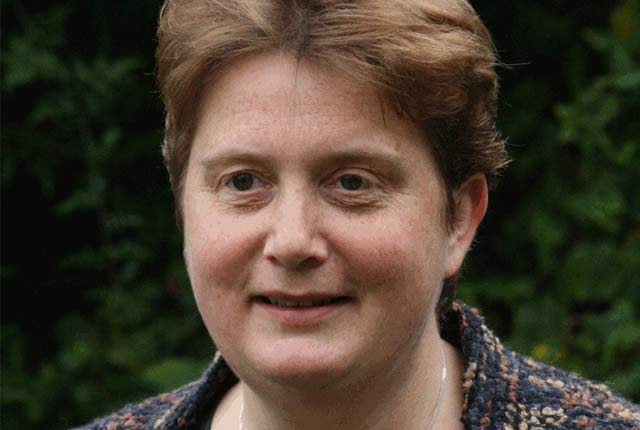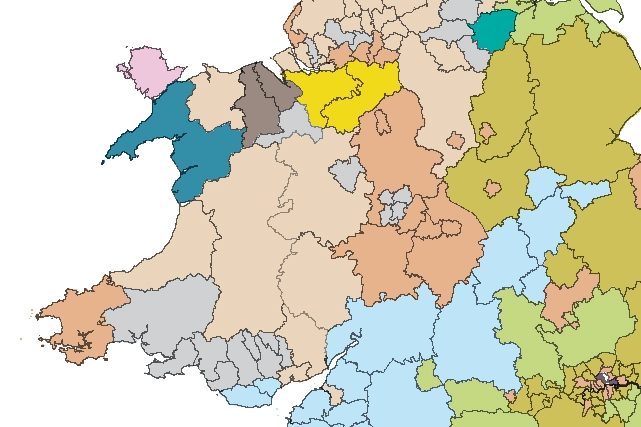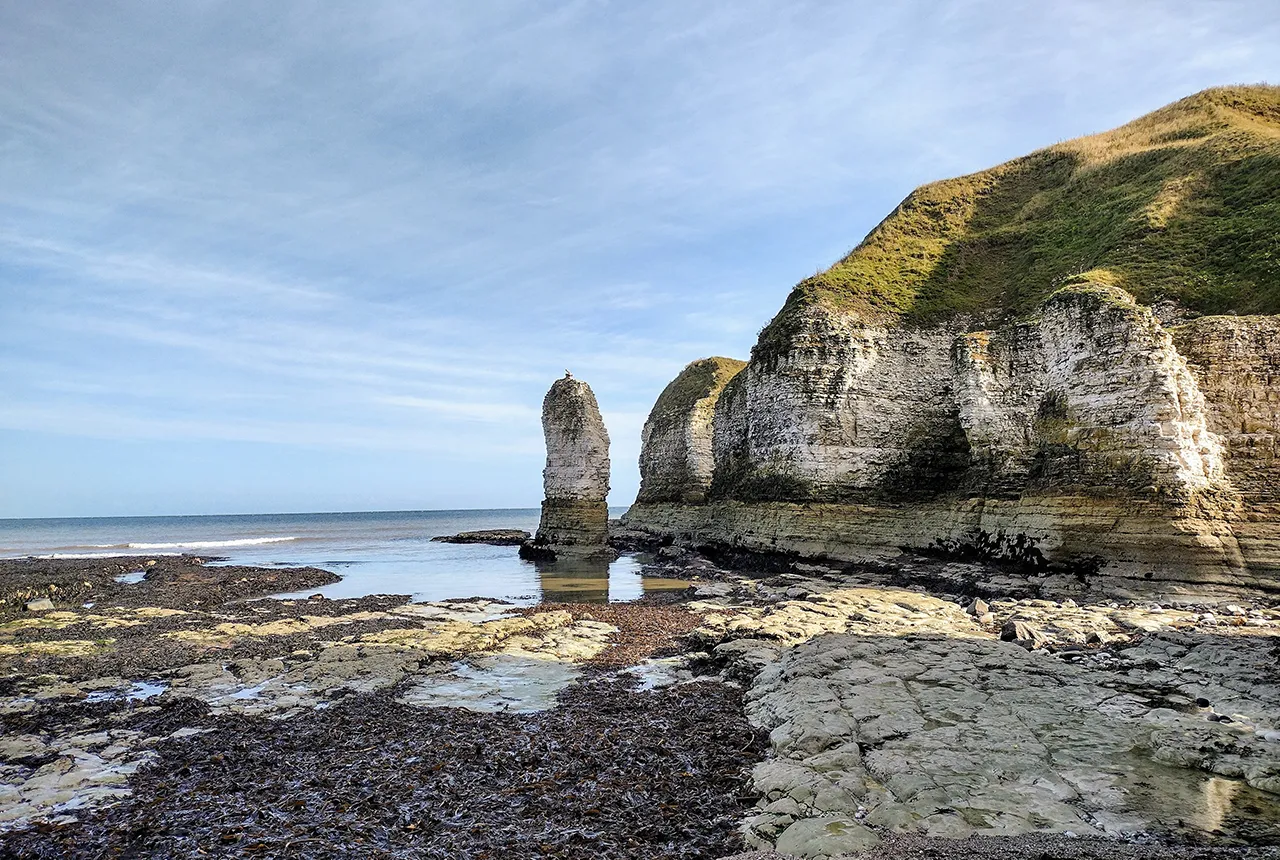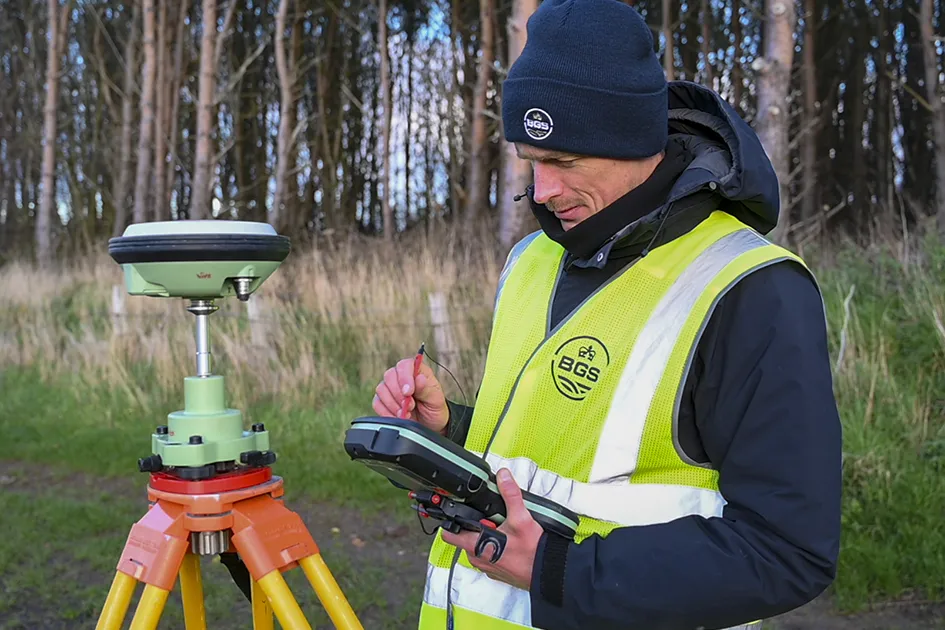Dr Alison Monaghan awarded MBE
Dr Alison Monaghan has been recognised in the 2021 Queen’s New Year Honours List for her outstanding contribution to geology.
30/12/2020 By BGS Press
Dr Monaghan is currently science lead for the UK Geoenergy Observatory in Glasgow, focusing on shallow mine water geothermal and heat storage, environmental change and impact. The observatory is a unique facility for the science community and users to take forward research that is vital to understanding the role that shallow mine heat energy could have in decarbonising our energy supply and the environmental management regulation needed.
Dr Monaghan MBE said: “I am honoured and very surprised to receive this award. The application of geology for public good and open information are at the heart of my work. For me, this award is for all the multi-disciplinary teams I have worked with in BGS, academia, Government and industry. The subsurface and geoscience are key in our transition to a sustainable, decarbonised economy and we need to combine scientific excellence with collaborative working to achieve that.”
Starting her career with BGS as a field geologist and 3D modeller, Dr Monaghan’s role and experience has developed through a variety of projects such as basin analysis in energy geoscience, urban geology and coalfields, primarily in Central Scotland and offshore UK. She was involved in developing early stages of the National Geological Model and has wide knowledge of onshore and offshore UK Carboniferous basins and geochronology. She also led research into the shale resource estimation of central Scotland (2014) and the 21CXRM Palaeozoic Project with the Oil and Gas Authority and industry (2014-2016).
A graduate of the University of Cambridge and with a PhD obtained at the University of Edinburgh, she has been a chartered geologist since 2002.
I am delighted that Alison has been honoured with an MBE. Alison’s work leading the scientific delivery of the UK Geoenergy Observatory in Glasgow from inception, enabling open data and early academic involvement, together with her work on Palaeozoic basins onshore and offshore UK are essential for the delivery of the BGS strategy to find geoscientific solutions towards net zero.
Dr Karen Hanghøj, Director of the British Geological Survey
It is fantastic to see Alison recognised for her years of hard work. She is an admirable scientist who is a leader in her field and drives the teams she works with expertly, motivating and inspiring her colleagues. Alison is a fine example of the high-calibre scientists we have working at BGS and at the Lyell Centre.
Dr Tracy Shimmield, Director of the Lyell Centre
For further information please contact Sarah Nice, BGS press office:
sebr@bgs.ac.uk | 07989 115657 | @sarahnice1
Image credit: BGS © UKRI
British Geological Survey
The British Geological Survey (BGS) is a world leading applied geoscience research centre that is part of UK Research and Innovation (UKRI) and affiliated to the Natural Environment Research Council (NERC). BGS core science provides objective and authoritative geoscientific data, information and knowledge to inform UK Government on the opportunities and challenges of the subsurface. It undertakes national and public good research to understand earth and environmental processes in the UK and globally. The BGS annual budget of approximately £60 million pa is funded directly by UKRI, as well as research grants, government commissions and private sector contracts. Its 650 staff work across the UK with two main sites, the head office in Nottingham and Lyell Centre, a joint collaboration with Heriot Watt University in Edinburgh. BGS works with more than 150 private sector organisations, has close links to 40 universities and sponsors about 100 PhD students each year. Please see www.bgs.ac.uk.
Relative topics
Related news

Map of BGS BritPits showing the distribution of worked mineral commodities across the country
18/02/2026
BGS’s data scientists have generated a summary map of the most commonly extracted mineral commodities by local authority area, demonstrating the diverse nature of British mineral resources.

Funding awarded to map the stocks and flows of technology metals in everyday electronic devices
12/02/2026
A new BGS project has been awarded Circular Electricals funding from Material Focus to investigate the use of technology metals in everyday electrical items.

New UK/Chile partnership prioritises sustainable practices around critical raw materials
09/02/2026
BGS and Chile’s Servicio Nacional de Geología y Minería have signed a bilateral scientific partnership to support research into critical raw materials and sustainable practices.

Extensive freshened water confirmed beneath the ocean floor off the coast of New England for the first time
09/02/2026
BGS is part of the international team that has discovered the first detailed evidence of long-suspected, hidden, freshwater aquifers.

Funding secured to help mitigate ground risk in UK construction sector
05/02/2026
The BGS Common Ground project has been awarded new funding to help unlock the value of ground investigation data.

Can sandstones under the North Sea unlock the UK’s carbon storage potential?
02/02/2026
For the UK to reach its ambitious target of storing 170 million tonnes of carbon dioxide per year by 2050, it will need to look beyond the current well-studied geographical areas.

Quaternary UK offshore data digitised for the first time
21/01/2026
The offshore wind industry will be boosted by the digitisation of a dataset showing the Quaternary geology at the seabed and the UK’s shallow subsurface.

Suite of ten new soil reference materials released
02/01/2026
BGS has a longstanding track record of producing high-quality reference materials and has released ten new soil reference materials.

Perth and Kinross tops the UK’s earthquake activity charts for 2025
29/12/2025
Seismologists at BGS have published data on the number of seismic events over the past 12 months with over 300 earthquakes recorded.

BGS awarded funding to support Malaysia’s climate resilience plan
17/12/2025
The project, funded by the Foreign, Commonwealth & Development Office, will focus on minimising economic and social impacts from rainfall-induced landslides.

New geological maps of the Yorkshire Wolds to better inform groundwater management and policy decisions
17/12/2025
The new mapping provides crucial data on localised geological issues that may assist in protecting water supplies.

‘Three norths’ set to leave England and not return for hundreds of years
12/12/2025
The historic alignment of true, magnetic, and grid north is set to leave England, three years after they combined in the country for the first time since records began.



